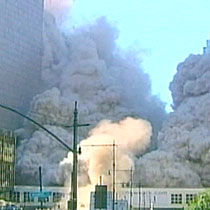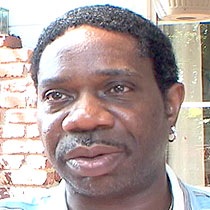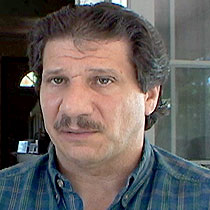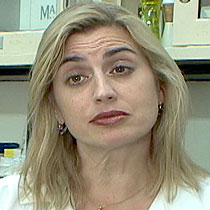2007年VOA标准英语-Growing Numbers of 9/11 Workers Have Illnesses(在线收听)
New York City
10 September 2007
About 3,000 people died in the September 2001 terrorist attacks in the United States. Six years later, experts say the attacks continue to devastate and even end lives. Among the casualties are many workers and volunteers who were exposed to the toxic smoke and dust of Ground Zero, where the World Trade Centers collapsed. Hundreds of firefighters, police, clean-up and recovery workers, and volunteers suffer serious health problems, both physical and emotional, or are disabled. VOA's Carolyn Weaver has a report.

Toxic dust clouds resulted from the collapse of the World Trade Center buildings
Three people: a grief counselor, a disabled ironworker, and a former paramedic -- have joined together to advocate for fellow veterans of Ground Zero. They say they all suffered health effects from working at the site.
 |
| Marvin Bethea says he was injured as a result of working at Ground Zero without a breathing apparatus |
Bethea suffered a massive stroke the following month, and is now retired on disability.
His friend John Sferazo was on the pile as an ironworker for about 30 days. "As you spent more and more time there, it almost felt as if someone was sitting on your lungs, and every time you get a lung infection, that is what it feels like. And you developed what was called a 'World Trade Center cough'."
 |
| John Sferazo says he developed lung infections and a cough as a result of working in polluted air |
"Masks were not given out until several days later," says Sferazo. "And the problem with wearing a mask was that once masks were given out, we were already told maybe a day or two into wearing them, by our elected officials, that the air quality was safe to breathe and the water was safe to drink."
"Everyone on that site should have been fit-tested and wearing a respirator,” says Dr. Jacqueline Moline, “and if they could not wear it 100 percent of the time, they should have been wearing it 95 percent of the time."
 |
| Dr. Jacqueline Moline says the air at Ground Zero was never safe |
She notes that depression and post-traumatic stress disorder (PTSD) are common psychological ailments in many Ground Zero workers. Both Bethea and Sferazo say they still suffer from it.
Bethea explains, "I cried every day for about 40 days. I was healthy, I was an athlete, I lost 16 people I knew that day."
Sferazo describes his experience. "You heard helicopters, you heard these jets, you are finding pieces of human beings everywhere. Does anyone really think that we thought about our health and safety?"
A recent federal report found that the cost of treating Ground Zero workers could exceed $300 million a year. That is far more than the amount allotted by the federal government thus far to deal with the problem. Experts estimates that as many as 20,000 workers and volunteers may need care eventually.
The three advocates -- Bethea, Sferazo and grief counselor Julie Hernandez have formed an organization called "Unsung Heroes Helping Heroes."